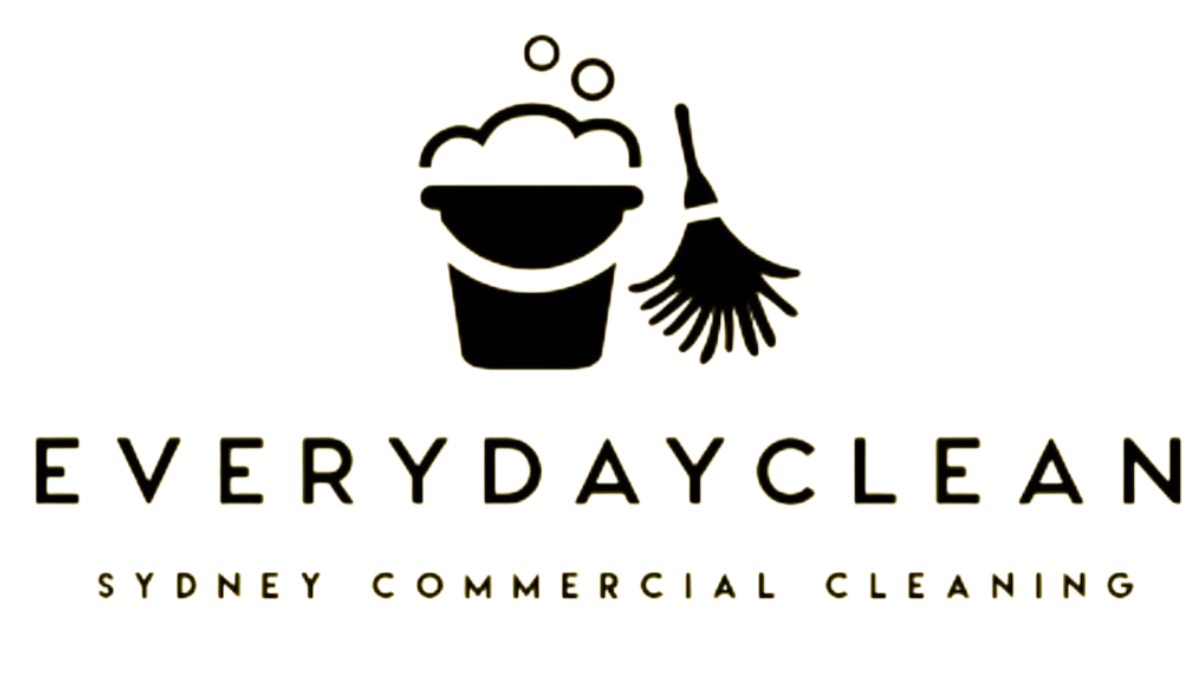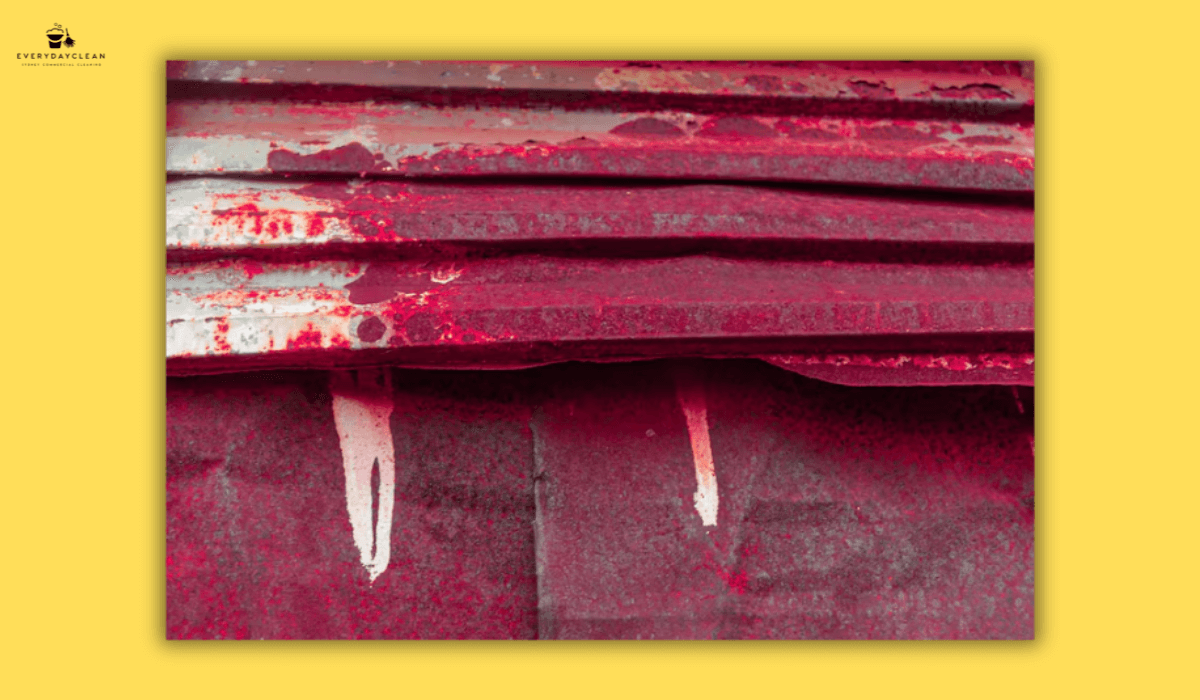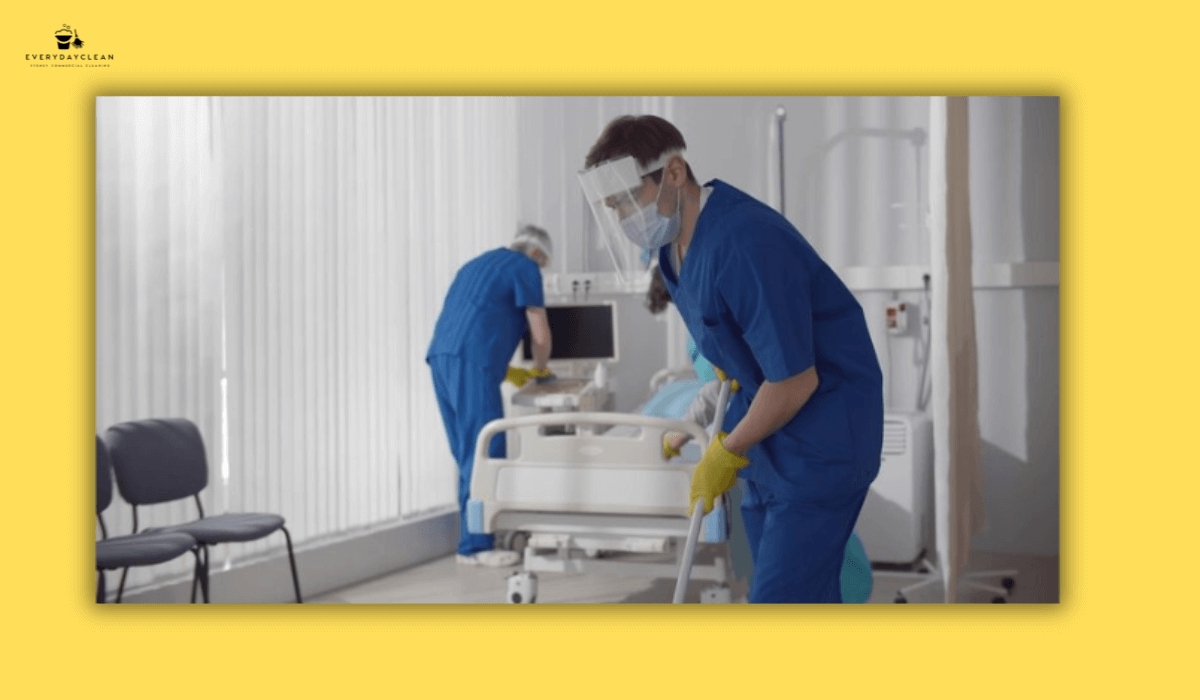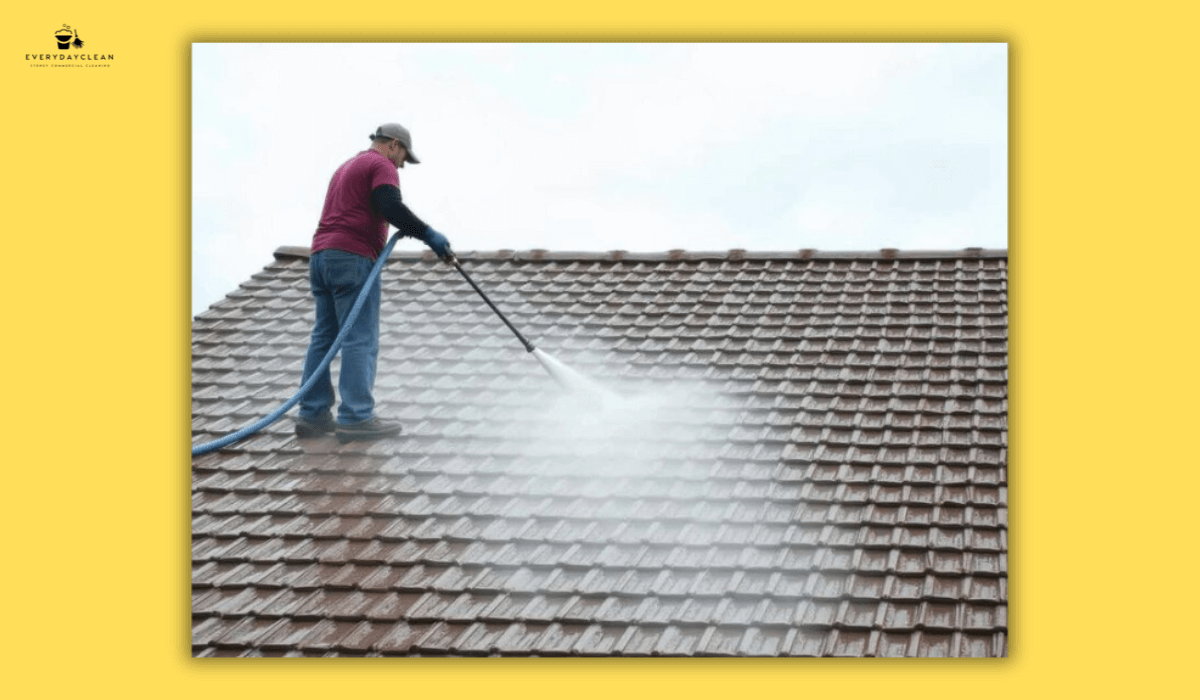Restaurant Kitchen Cleaning Tips: 9-Step Checklist
Restaurant kitchen cleaning tips are essential for keeping food prep areas hygienic, compliant, and inspection-ready. A structured checklist ensures every surface and appliance is cleaned properly to prevent contamination and maintain smooth workflows. The most effective practices include:
- Setting a clear daily, weekly, and monthly cleaning schedule
- Preventing cross-contamination with colour-coded tools
- Cleaning grease buildup using food-safe degreasers
- Disinfecting high-touch surfaces multiple times a day
- Deep cleaning equipment with safe disassembly
- Sanitising waste bins and disposal zones regularly
- Maintaining slip-resistant, safe kitchen floors
- Complying with FSANZ and council regulations
- Booking professional deep cleans for high-risk areas
By following these nine steps, commercial kitchens can reduce contamination risks, meet food safety codes, and create a cleaner, safer environment for staff and guests.
These steps also complement practices outlined in our office cleaning safety tips, helping ensure cleanliness across all areas of your venue.
1. Set a Clear Daily, Weekly, and Monthly Cleaning Schedule
To maintain consistent hygiene, kitchen cleaning tasks must be broken into frequencies that reflect risk and use.
A structured schedule allows cleaning staff to track progress, complete tasks before food prep begins, and avoid buildup in hard-to-clean areas.
Suggested Breakdown:
- Daily tasks: Clean prep benches, wipe down equipment, mop floors, sanitise sinks and fridge handles, dispose of rubbish
- Weekly tasks: Degrease exhaust filters, deep clean fridges, clean inside ovens, descale dishwashers
- Monthly tasks: Clean floor drains, deep clean cool rooms, sanitise ceiling vents, clean behind large equipment
Digital checklists and wall charts support accountability across shifts.
2. Prevent Cross-Contamination in Every Cleaning Step
Preventing the spread of bacteria between surfaces is essential in any commercial kitchen. Cleaning methods should reinforce zoning standards and food hygiene codes.
Practical Applications:
- Use colour-coded cloths and mops for raw, cooked, and non-food zones
- Never reuse sanitising buckets across food prep and waste areas
- Store cleaning gear separately for each kitchen zone
Cross-contamination risks can also be reduced through clear training and signage for new staff.
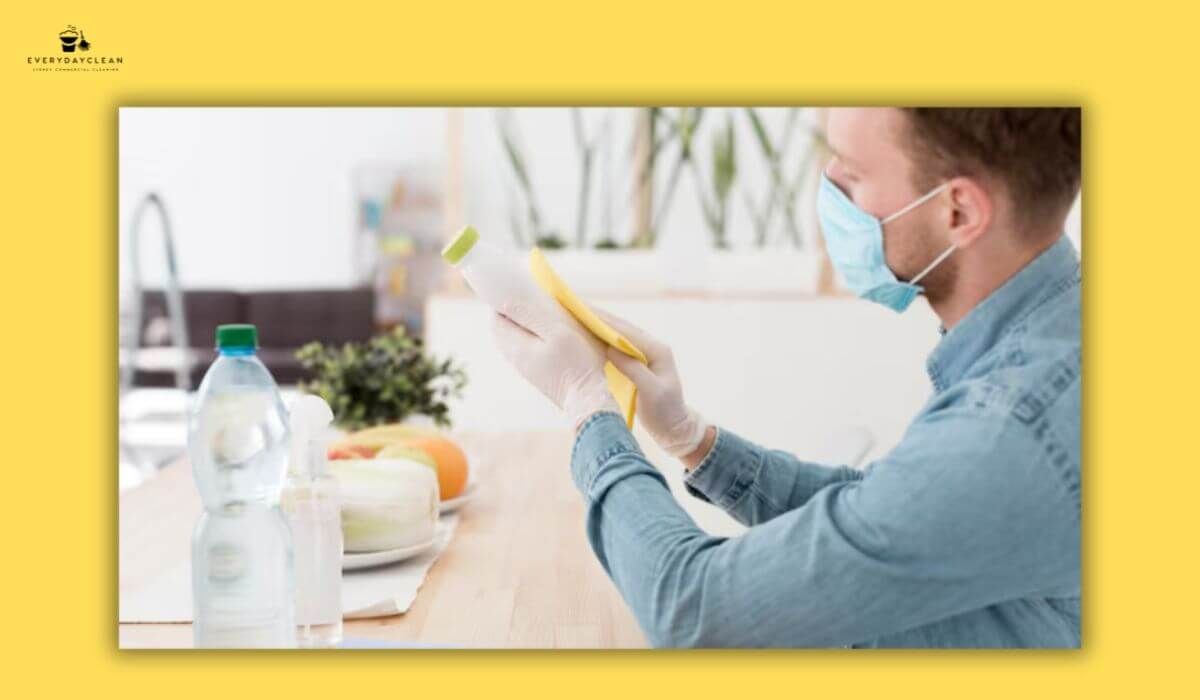
3. Clean Grease Buildup with Food-Safe Degreasers
Grease accumulation is a major cause of hygiene issues and equipment failure. Commercial-grade degreasers must be food-safe, non-corrosive, and applied according to the manufacturer's dwell time.
Best Practice:
- Spray degreasers after service or during closing
- Use long-handled brushes to access under appliances
- Rinse with hot water before final sanitisation
Vent hoods, splashbacks, and cooklines should receive extra attention in high-temperature kitchens.
4. Disinfect High-Touch Surfaces Throughout the Day
Touchpoints such as door handles, fridge doors, switches, and pass-throughs are hotspots for germ transfer. These areas should be sanitised frequently, not just during deep cleaning.
Integration Tips:
- Include these surfaces in the daily cleaning schedule
- Use quick-dry, food-safe sanitisers that leave no residue
- Train all staff to wipe down between shifts or prep stages
Frequent disinfection prevents hidden contamination between service periods.
5. Deep Clean Equipment with Safe Disassembly
Thorough equipment cleaning requires partial disassembly to eliminate buildup in hard-to-reach crevices and internal components.
Key Actions:
- Unplug and cool down appliances before cleaning
- Use manufacturer guidelines to disassemble parts
- Scrub internal components, soak removable trays, and sanitise all contact points
This step is critical for meat slicers, grills, food processors, and under-bench fridges.
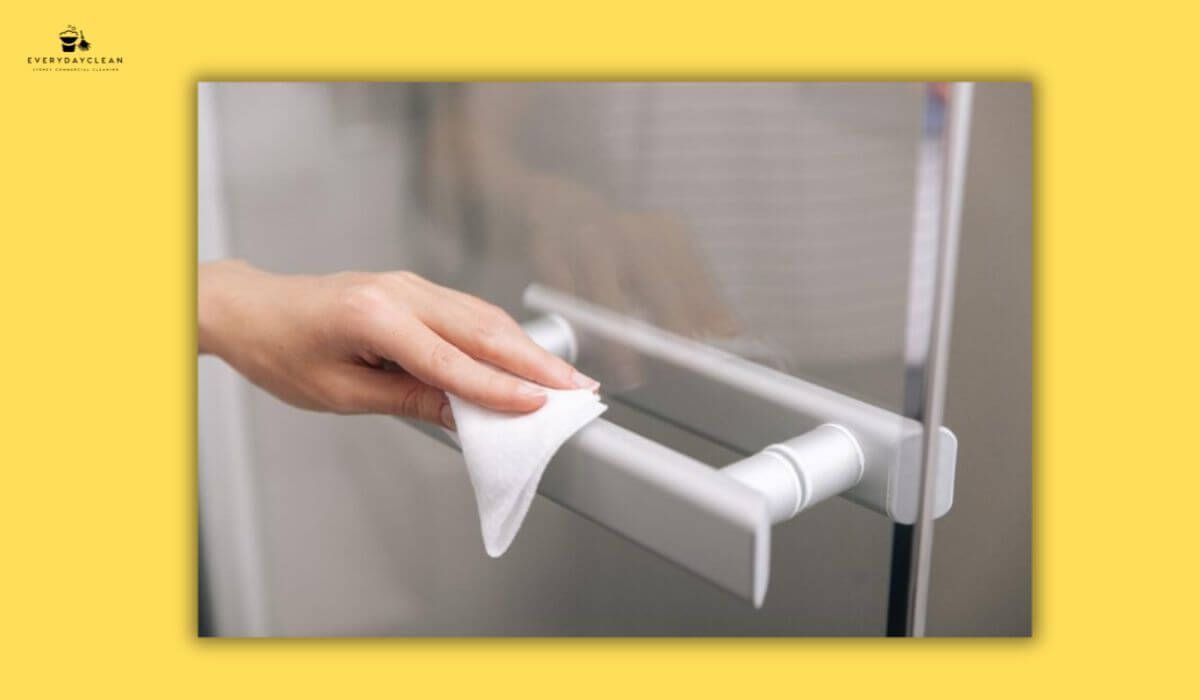
6. Clean and Disinfect Waste Bins and Disposal Zones
Bin hygiene plays a major role in pest prevention and odour control. It's not enough to remove rubbish—bins must be cleaned and sanitised on a recurring schedule.
Cleaning Approach:
- Replace liners daily and wash bins weekly with hot water and disinfectant
- Store bins with lids closed and away from food prep zones
- Clean around bin stations and floor areas to avoid residue
Grease traps and organic waste containers should be professionally emptied and cleaned at set intervals.
7. Maintain Safe, Slip-Resistant Floors
Restaurant kitchen floors are exposed to spills, oil, and food waste throughout the day. Unsafe cleaning practices increase slip hazards and staff injuries.
Floor Safety Tips:
- Use degreasers specifically made for commercial kitchen flooring
- Clean under mats and equipment regularly
- Always mop dry after cleaning and place warning signs during service hours
WHS compliance requires non-slip flooring to be maintained through daily cleaning and periodic degreasing.
8. Comply with FSANZ and Local Council Regulations
Cleaning isn’t just about appearance—it’s tied to legal compliance under Australian food laws. Businesses must demonstrate that their kitchen meets hygiene codes at all times.
Compliance Methods:
- Maintain detailed cleaning logs with time, date, and staff initials
- Keep Safety Data Sheets (SDS) for all chemicals on site
- Schedule external audits or hygiene reviews monthly or quarterly
Training all team members on Code 3.2.2 (Food Safety Practices and General Requirements) ensures inspection readiness.
9. Book Regular Deep Cleans with Professional Kitchen Cleaners
In-house staff can manage daily cleaning, but high-risk areas often require specialist intervention. Booking a licensed commercial kitchen cleaner ensures compliance and food-safe results.
Why Hire Professionals:
- Access to high-temp steam systems and food-grade chemicals
- HACCP-trained cleaners who understand zoning protocols
- Efficient cleaning that reduces downtime and meets inspection standards
Scheduling deep cleans monthly or quarterly keeps your kitchen in top operational condition.
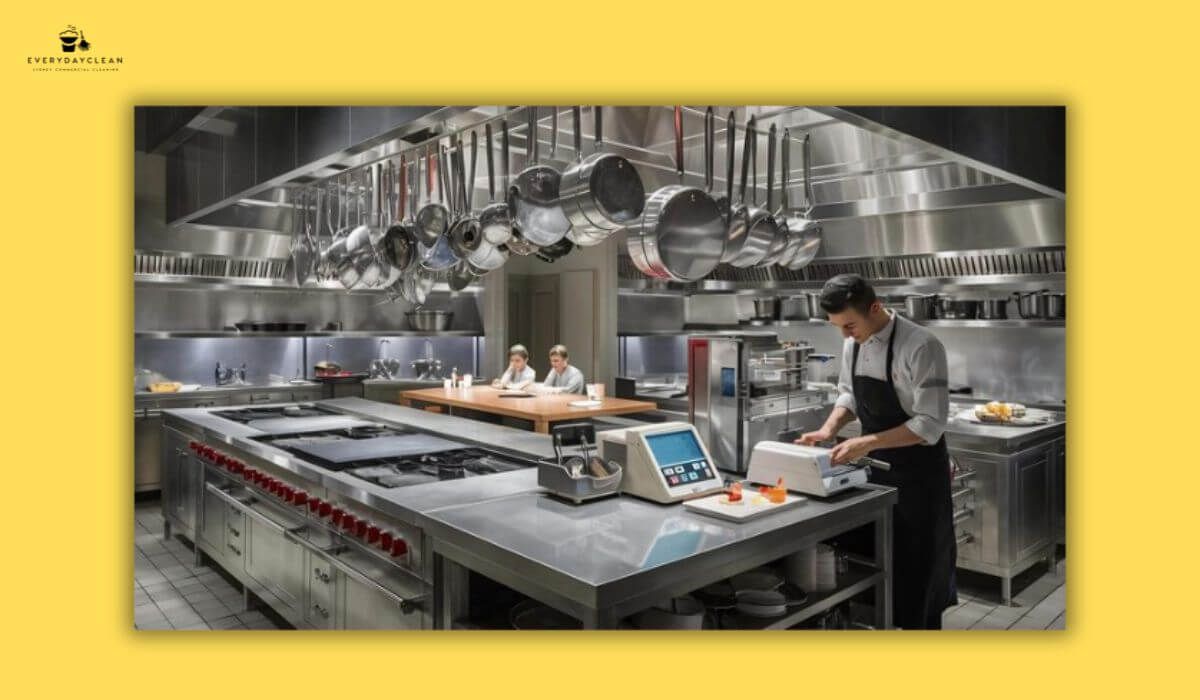
Frequently Asked Questions: Restaurant Kitchen Cleaning Tips
Before wrapping up, here are answers to the most common search queries related to restaurant kitchen cleaning—each aligned with real user intent and food safety best practices.
What is the most effective way to clean a commercial kitchen?
The most effective method is to follow a multi-tiered cleaning schedule that separates tasks by frequency: daily, weekly, and monthly. Surfaces must be cleaned with detergent and then sanitised with approved food-safe products. All staff should be trained in zone-specific cleaning, including equipment disassembly, grease removal, and hygiene documentation.
How often should restaurant kitchens be deep cleaned?
Kitchens should be deep-cleaned at least once a month. This includes cleaning under equipment, inside exhaust hoods, floor drains, grease traps, and cold storage units. High-traffic venues may require fortnightly professional cleans to maintain FSANZ compliance and operational hygiene.
What are safe cleaning chemicals for restaurant kitchens?
Safe options include:
- Neutral pH detergents
- Food-grade degreasers
- Quat-based sanitisers
- Hydrogen peroxide disinfectants
These products must be approved for commercial use and used according to SDS guidelines. All surfaces should be rinsed and air-dried before reuse.
How do restaurants avoid cross-contamination during cleaning?
Cross-contamination is avoided by colour-coding cleaning tools, assigning zones for specific equipment, and disinfecting surfaces after each food prep cycle. Cleaners must not use the same cloths across raw, cooked, or waste areas. Tools must also be sanitised after each use.
Who is responsible for cleaning in a commercial kitchen?
Cleaning responsibility is shared between kitchen staff, supervisors, and venue managers. Daily cleaning is typically handled internally, while scheduled deep cleaning should be outsourced to licensed commercial cleaning companies. Managers must oversee all hygiene logs and ensure compliance with council and FSANZ standards.
Book Professional Restaurant Kitchen Cleaning in Sydney
Everyday Clean offers expert-level restaurant kitchen cleaning services tailored to Sydney’s commercial kitchens. With licensed teams trained in food safety and WHS protocols, we deliver grease-free, audit-ready results for hospitality venues of all sizes.
Request a quote today and keep your kitchen clean, compliant, and confidently prepared for inspections.
Author: Everyday Clean Content Team
Everyday Clean is Sydney’s trusted provider of commercial cleaning solutions, including pools, gyms, offices, and strata properties. Our licensed professionals use advanced, eco-friendly equipment to deliver safe, compliant, and spotless results. With deep experience across Sydney’s hospitality, fitness, and residential sectors, we help facilities maintain inviting, healthy environments that guests trust.
